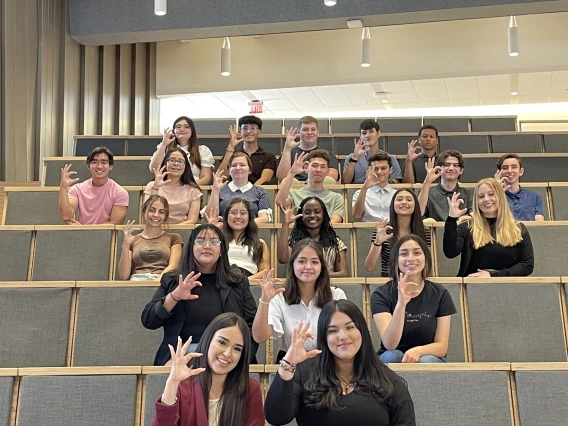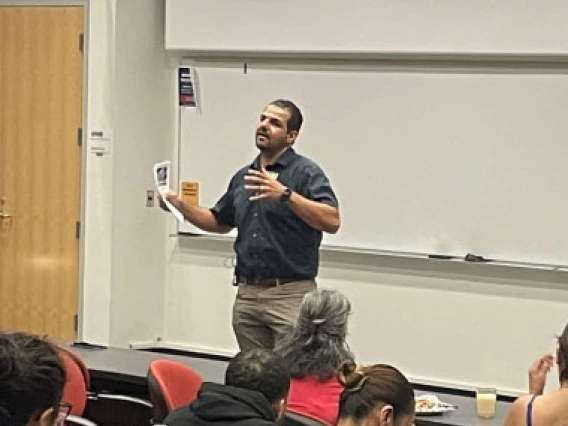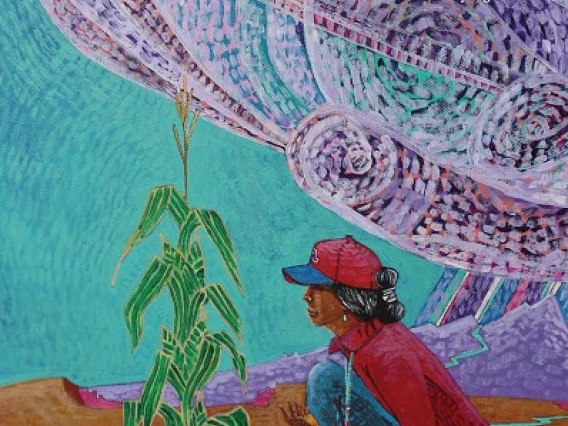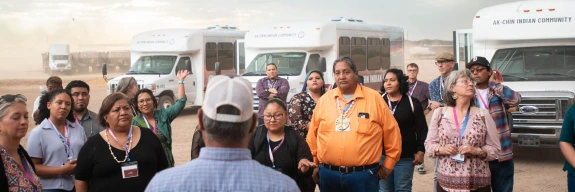
Community Engagement Core
The Community Engagement Core serves as a non-biased resource of scientific information, promotes environmental health literacy, provides environmental health educational resources, and supports connections between SWEHSC investigators and the community. We do this through combining respect for Indigenous science, “funds of knowledge,” and citizen observation/inquiry with modern scientific advances to engage communities to design materials and programs to improve environmental health. Specifically, we aim to:
1. Identify and address environmental health needs and priorities via multi-directional communication
2. Translate SWEHSC research findings into environmental health knowledge and action
3. Advance the field of community engagement and environmental health literacy
4. Develop future environmental health scientists and leaders from impacted Southwest communities.
MULTI-DIRECTIONAL PARTNERSHIP DEVELOPMENT
The CEC uses a Multi-Directional Partnership Paradigm to identify, establish, and maintain collaborations. Within each relationship, the CEC:
Identifies potential partners
Image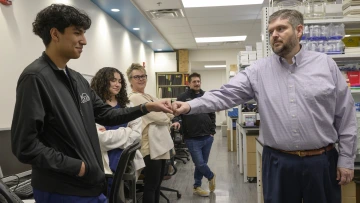
Forms a clear rationale based on answers to essential questions
1. Why is the SWEHSC CEC needed for collaboration?
2. How will the CEC assist with the project?
3. How will this partnership promote the mission of the SWEHSC?
4. How will this partnership build community capacity for addressing EH challenges?
Recruits appropriate expertise from SWEHSC investigators and student researchers
Share knowledge and chooses mutually agreeable EH foci
Creates or adapts engagement methods, materials, and resources

